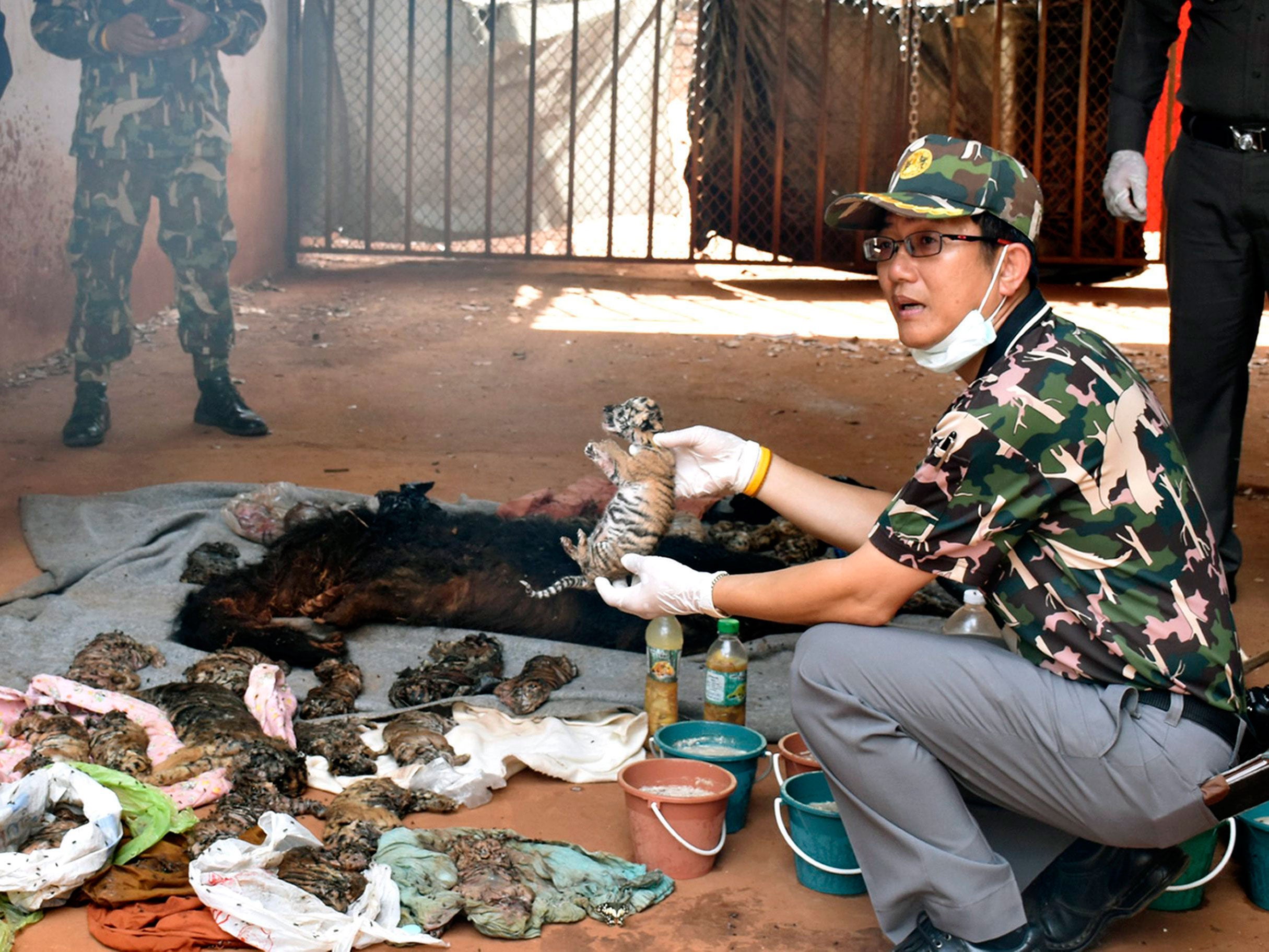Thailand Tiger Temple: 40 tiger cub bodies found in freezer at controversial tourist attraction
The temple is a tourist attraction but had been investigated for suspected links to wildlife trafficking and abuse
Your support helps us to tell the story
From reproductive rights to climate change to Big Tech, The Independent is on the ground when the story is developing. Whether it's investigating the financials of Elon Musk's pro-Trump PAC or producing our latest documentary, 'The A Word', which shines a light on the American women fighting for reproductive rights, we know how important it is to parse out the facts from the messaging.
At such a critical moment in US history, we need reporters on the ground. Your donation allows us to keep sending journalists to speak to both sides of the story.
The Independent is trusted by Americans across the entire political spectrum. And unlike many other quality news outlets, we choose not to lock Americans out of our reporting and analysis with paywalls. We believe quality journalism should be available to everyone, paid for by those who can afford it.
Your support makes all the difference.The bodies of 40 tiger cubs have been found in a freezer in Thailand’s famous Tiger Temple.
The Buddhist temple, in the Kanchanaburi province west of Bangkok, is a tourist destination where people took selfies with bottle-fed cubs and more than 100 tigers could be seen.
The temple was raided on Monday following international pressure over suspected animal trafficking and abuse. Thai wildlife authorities found the tiger carcasses as they removed live animals from the premises two days later.
Adisorn Nuchdamrong, deputy director-general of the Department of National Parks, said the 40 carcasses were discovered in a freezer in a kitchen area of the temple, though he did not know why the dead cubs had been stored in this manner.
“They must be of some value for the temple to keep them,” he said, “but for what is beyond me.”
Tiger parts are used in traditional Chinese medicine.
A total of 52 live tigers have been removed from the temple by officials, the latest move in a tug-of-war to bring the tigers under state control that has been playing out for 15 years.

There are still 85 tigers at the temple, Mr Nuchdamrong said.
Thailand has long been a hub for the illicit trafficking of wildlife and forest products, including ivory. Exotic birds, mammals and reptiles, some of them endangered species, can often be found on sale in markets.
On Tuesday, the People for the Ethical Treatment of Animals group said the temple was "hell for animals" and called on tourists to stop visiting animal attractions at home and abroad.
Additional reporting by Reuters

Join our commenting forum
Join thought-provoking conversations, follow other Independent readers and see their replies
Comments